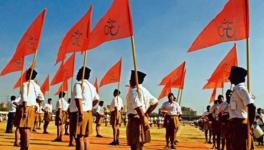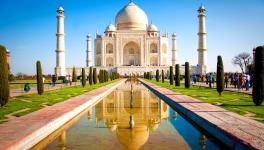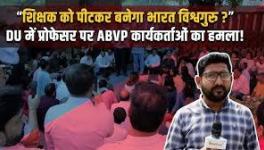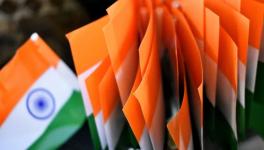Go to Pakistan and Demonising Indian Muslims
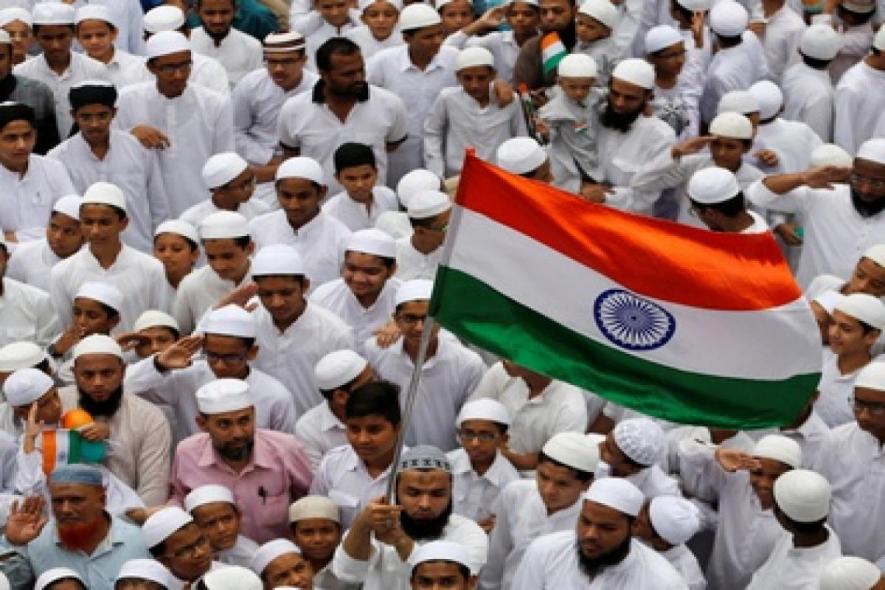
Representational Image. Image Courtesy: Reuters
‘Go to Pakistan’ is probably the most-used phrase to target India’s Muslims today. Recently, Akhilesh Narayan Singh, a Superintendent of Police at Meerut district in Uttar Pradesh shouted (a video of the incident is in circulation) “go to Pakistan” at protesters at Lisari Gate, a prominent ‘Muslim’ locality of the city. “Those wearing black or yellow armbands—tell them to go to Pakistan,” he says in the video.
Singh’s seniors in the force have stood by him. They are it a “natural” reaction to the crowd raising pro-Pakistan slogans. Many leaders of the ruling Bharatiya Janata Party, including former Madhya Pradesh chief minister and Union minister Uma Bharti, have also defended him. Fellow BJP leader Mukhtar Abbas Naqvi, however, broke ranks with his party colleagues. He said that action should be taken against Singh. This is the same Naqvi who had earlier that those who want to eat beef can go to Pakistan. This was when beef-related arguments were going on in the country after a spate of lynchings of Muslims and Dalits.
It’s hard to recall if any BJP leader has previously opposed the use of the ‘go to Pakistan’ jibe against Muslim citizens. But true to their dominant position, the pro-government trolls who support its brand of divisive politics have trolled Naqvi on the issue.
In the last few years, the BJP has allowed rabble-rouser to deploy this particular ‘Pakistan’ slogan as a powerful weapon to demonise Indian Muslims in general and to humiliate those who have Muslim-sounding names. When eminent writers and film-makers were returning the awards that the state had conferred on them, in protest against growing intolerance in society, the Bollywood star Aamir Khan had stated that his wife, Kiran Rao, worries about their son’s future in this environment. Immediately, BJP leaders such as Giriraj Singh had pounced on him with demands that he ‘go to Pakistan’.
Over the last few years, another dimension has been added to the humiliation of Muslims. Those who are critical of the policies of the BJP and its ideological mentor, the Rashtriya Swayamsevak Sangh (RSS) have been nicknamed ‘anti-nationals’. And now they are being accused of speaking “the language of Pakistan”.
The misuse of India’s neighbour, a Muslim-dominated country, to label all Muslims and dissidents in India is a shrewd strategy of the communal forces. It goes a step beyond ‘cricket nationalism’, wherein the loyalty to the nation of Muslims was tested on the basis of which player or team they allegedly support. The national hysteria generated by an India-Pakistan cricket match fomented the right-wing Hindu nationalists to target Indian Muslims. The moment a match was announced, they would propagate that Indian Muslims are surely cheering for Pakistan’s team. The unfortunate grain of truth in this was that a section of disgruntled and alienated Muslim did cheer for Pakistan. This, however, does not represent the whole picture. Not only do most Indian Muslims hope fore the Indian team’s victory, India has had many a stellar Muslim cricketer, who have contributed to Indian cricket victories in international contests, including against Pakistan.
Cricket legends such as Mansoor Ali Khan Pataudi, Irfan Pathan, and Mohammad Azharuddin are just a few on this long list of those who won India a glorious cricketing image worldwide.
Even in matters of defence, legions of Muslims have contributed to India’s wars with Pakistan. Indian Army soldier Abdul Hamid’s role in the Indo-Pak war of 1965 and the role of Muslim soldiers in the Kargil war are a part of our military history. There have been Army generals who contributed to the service of the nation. General Zamiruddin Shah was asked to handle the Gujarat carnage of 2002. He recounted how, despite the local administration refusing to cooperate for some time, eventually, the military was able to quell some of the violence unfolding in the state.
During the freedom movement, Muslims were as much a part of the struggle against British rule as any other community. The perception has been created that Muslims were demanding a separate state of Pakistan, but that is not true. It was only the elite sections of Muslims who supported the politics of the Muslim League. Later, the very same League could mobilise some other sections and unleash violence as on 16 August 1946, also known as Direct Action Day, when the worst-ever communal riots broke out in Kolkata as the Muslim League Council attempted to show its power and present its demand for a separate country, Pakistan. In a way, this event precipitated the actual process of India’s Partition. However, it must not be forgotten that such a communal Partition was also the goal of the British and an outcome of the ‘two-nation theory’.
Not much is said about the role a greater number of Muslims played in the national movement; those who steadfastly opposed the Partition and the ideas and politics that led to it. An excellent account of the role of Muslims in the freedom movement have been written by the likes of Syed Nasir Ahmad, Syed Ubaidur Rahman, Satish Ganjoo and Shamsul Islam. They narrate the contributions of great Muslim freedom fighters such as Khan Abdul Ghaffar Khan, Maulana Abul Kalam Azad, the Ansari brothers and Ashfaqulla Khan.
Immediately after Partition, communal propaganda went on the overdrive and blamed the event entirely on Muslim separatism. This totally undermined the role of ordinary Muslims in securing Independence. It ignores the massive marches and rallies held by them opposing the Lahore Resolution moved by Mohammad Ali Jinnah, the founder of the All-India Muslim League, in his party’s working committee. As a result, the entire Muslim community started being seen as a homogenous ‘other’. This laid the ground of other misconceptions against the community to start developing; for instance the atrocities of Muslim kings started being linked with individual Indian Muslims. These became a part of the popular folklore in India, leading to a growing hatred against them. This laid the foundation of violence and the eventual ghettoisation of Indian Muslims.
The interactive syncretism prevalent in India represented by Mahatma Gandhi and Jawaharlal Nehru was pushed to the margins. Those believing in pluralism did not actively engage with the issue. The economic marginalisation of Muslims, coupled with their increasing insecurity, led some of them to identify with Pakistan. This small section was, once again, presented as a representative of the entire Muslim community.
Today, the battle of perception is heavily tilted against the Muslim communities of India. Therefore, it is surprising that Naqvi has chosen to differ from his party colleagues and demand action against the errant police officer, Singh. The real victory would be if efforts are stepped up all around to combat the perception that has been constructed against this religious minority of India.
The author is a social activist and commentator. The views are personal.
Get the latest reports & analysis with people's perspective on Protests, movements & deep analytical videos, discussions of the current affairs in your Telegram app. Subscribe to NewsClick's Telegram channel & get Real-Time updates on stories, as they get published on our website.














